This week, I took time to remember a cool winter walk I took in Ericeira on the Poetry Paths (Caminhos de Poesia) by the sea. This trail in Ericeira is also called the Fernando Pessoa Walk or Caminho Fernando Pessoa. The path starts in the São Sebastião Urban Park, by the Chapel of S. Sebastião, and winds its way along the cliffs above the ocean. Every so often, there is a poem by Fernando Pessoa, a famous Portuguese poet, posted on a tall plaque on the path.
When I encountered the first poem, I understood portions of it. However, I couldn’t understand the nuance of each word the poet chose or the full power of each verse. I’ve included the poem below for those who are also working to learn the Portuguese language a word, a verse or a stanza at a time.

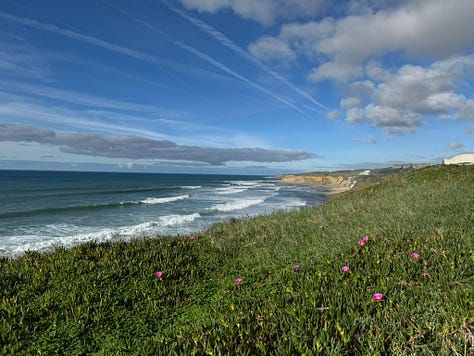
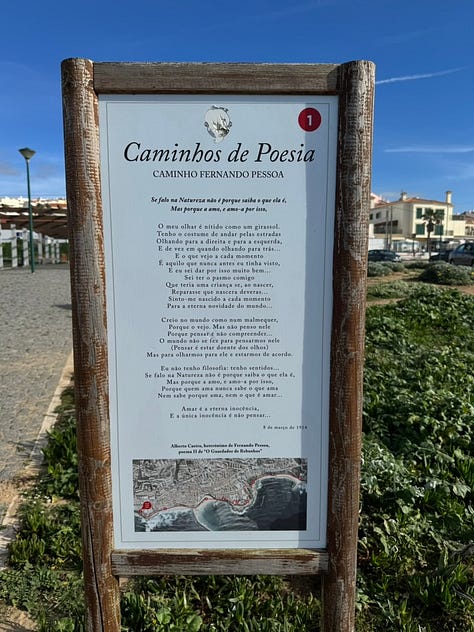
CAMINHO FERNANDO PESSOA
Se falo na Natureza não é porque saiba o que ela é,
Mas porque a amo, e amo-a por isso,
Fernando Pessoa (Alberto Caeiro)
8 de março de 1914
Poema II de "O Guardador de Rebanhos"
O meu olhar é nítido como um girassol.
Tenho o costume de andar pelas estradas
Olhando para a direita e para a esquerda,
E de vez em quando olhando para trás...
E o que vejo a cada momento
É aquilo que nunca antes eu tinha visto,
E eu sei dar por isso muito bem...
Sei ter o pasmo comigo
Que se tem uma criança se, ao nascer,
Reparasse que nascera deveras...
Sinto-me nascido a cada momento
Para a eterna novidade do mundo...
Creio no mundo como num malmequer,
Porque o vejo. Mas não penso nele
Porque pensar é não compreender...
O mundo não se fez para pensarmos nele
(Pensar é estar doente dos olhos)
Mas para olharmos para ele e estarmos de acordo.
Eu não tenho filosofia: tenho sentidos...
Se falo na Natureza não é porque saiba o que ela é,
Mas porque a amo, e amo-a por isso,
Porque quem ama nunca sabe o que ama
Nem sabe o porque ama, nem sabe o que é amar...
Amar é a eterna inocência,
E a única inocência é não pensar...
Each poem I stopped to read on the path reminded me of this life I have chosen: emigrating to a country where I couldn’t speak or understand the language, except in the most rudimentary way. I’m now in my second year of living in Portugal and studying the language. That day, as I read each poem and worked to understand it, I felt the delight, frustration, trepidation and satisfaction of having a new challenge, a new goal, in my daily life.
This afternoon, I looked at my photo of the poem; logged onto my online Portuguese dictionary; and found a tool to help me translate verb conjugations I didn’t recognize. I didn’t use Google Translate or Deepl. I came up with the translation below:
If I speak of nature, it is not because I know what she is,
But because I love her, and I love her for this reason.
My gaze is sharp as a sunflower.
I have the habit of walking the streets
Looking towards the right and towards the left,
And at times when looking behind….
And what I see at each moment
Is that at no time before did I see,
And I know to have for this reason quite well…
I know to have amazement
Like a child if, at birth,
Notices he was born, ought,
I feel born at each moment
For an eternal new world.
Sure, my translation may a bit questionable! However, if one drops this poem, or any poem, into Deepl or Google Translate, there’s yet another translation. Using these tools to translate poetry may result in less than ideal translations as well.
Since I completed an A2 Portuguese language class this spring, I am doing my best to translate poems that find their way into my life. This happens more frequently than I would have imagined, since the Portuguese incorporate art - including poetry - into the day-to-day life of the community and its environment.
My effort to translate poems is helping me understand how the Portuguese language and culture are intertwined. As I struggle, I keep in mind what
The fourth poem on the Ericeira Poetry Path, All the Love Letters Are, is included below. I won’t try to translate this one, but I encourage you to give it a try!
Todas as cartas de amor são
Ridículas.
Todas as cartas de amor são
Ridículas.
Não seriam cartas de amor se não fossem
Ridículas.
Também escrevi em meu tempo cartas de amor,
Como as outras,
Ridículas.
As cartas de amor, se há amor,
Têm de ser
Ridículas.
Mas, afinal,
Só as criaturas que nunca escreveram
Cartas de amor
É que são
Ridículas.
Quem me dera no tempo em que escrevia
Sem dar por isso
Cartas de amor
Ridículas.
A verdade é que hoje
As minhas memórias
Dessas cartas de amor
É que são
Ridículas.
(Todas as palavras esdrúxulas,
Como os sentimentos esdrúxulos,
São naturalmente
Ridículas).
21 de outubro de 1935
Do you read poems by Portuguese poets? Do you have a favorite Portuguese poet or poem? Have you found published English translations of Portuguese poets that seem to capture the spirit of the poetry? I hope you will share in a comment.
Resources
Fernando Pessoa - The Poetry Foundation website includes a short biography of Fernando Pessoa (1888-1935) and links to a few of his poems.
Press Release - This press release from the Mafra municipality site describes the Caminho de Poesia and the introduction of free small community libraries along the path.
Pessoa Archive / Arquivo Pessoa - An online archive of Fernando Pessoa’s poems.
Vegetarian Recipe Worth Trying
Minestrone Salad - The vegetarian recipe I plan to try next is this minestrone salad by Susan Spungen. Spungen says it’s a good potluck dish since it can be made ahead of time, travels well, and can sit for a few hours. I’m looking forward to giving this salad a try for an upcoming potluck or picnic.




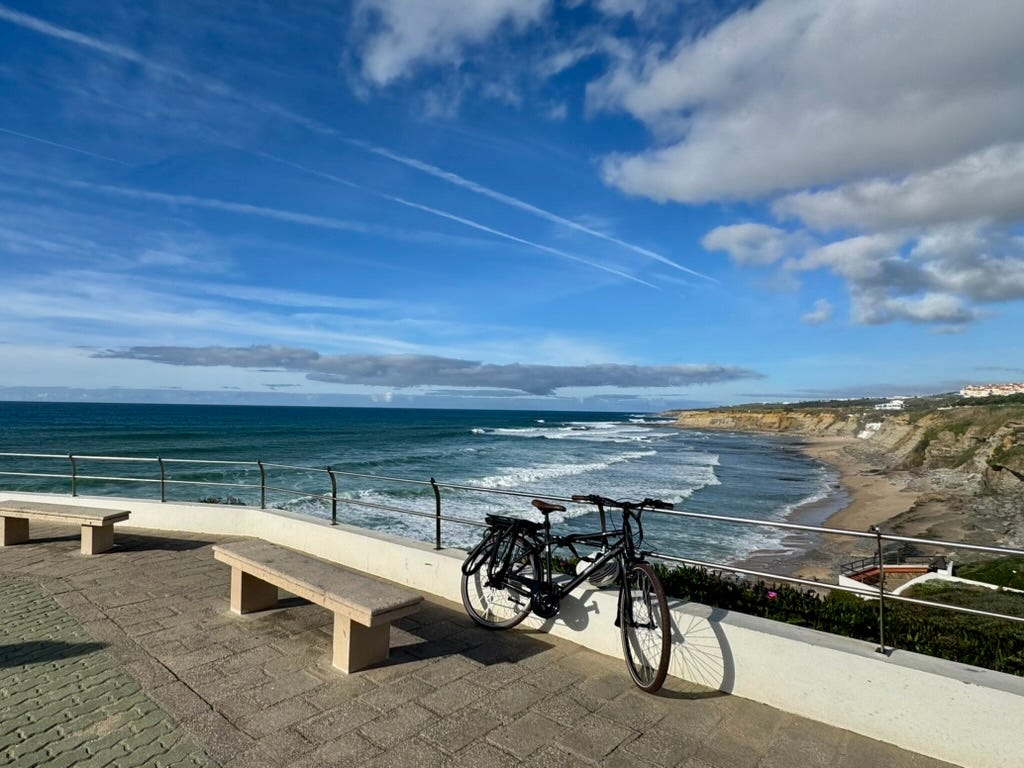
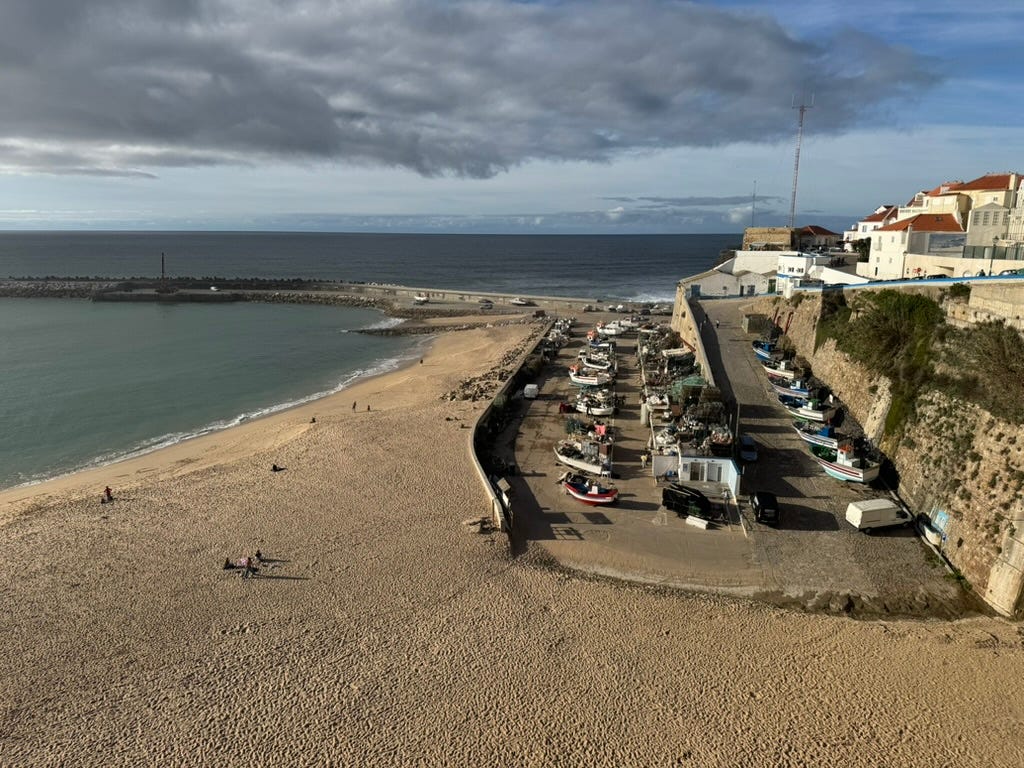
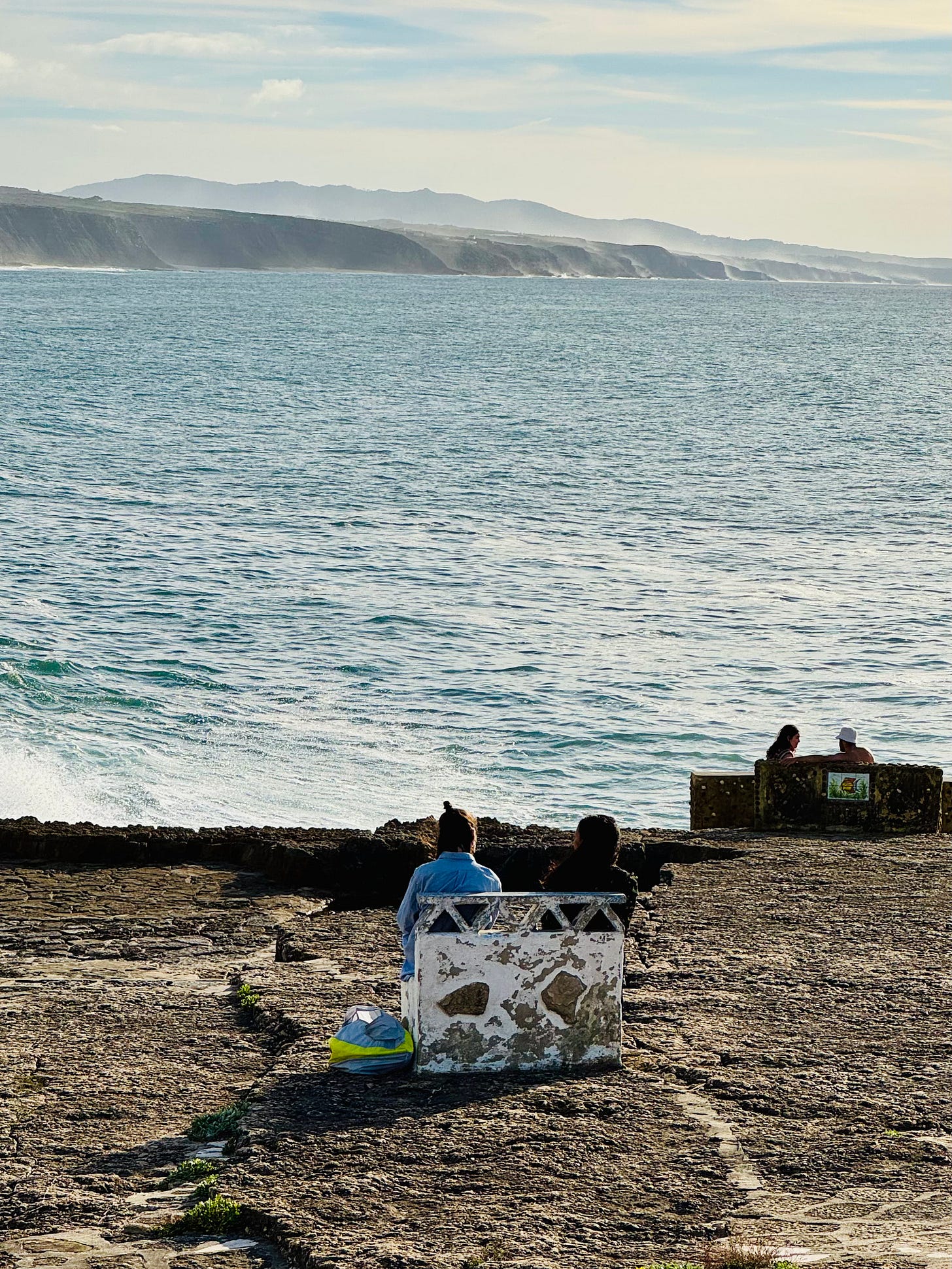
Thank you for this…reading poetry in Portuguese and trying to decipher is a great way to get to understand the psyche of this lovely country better.